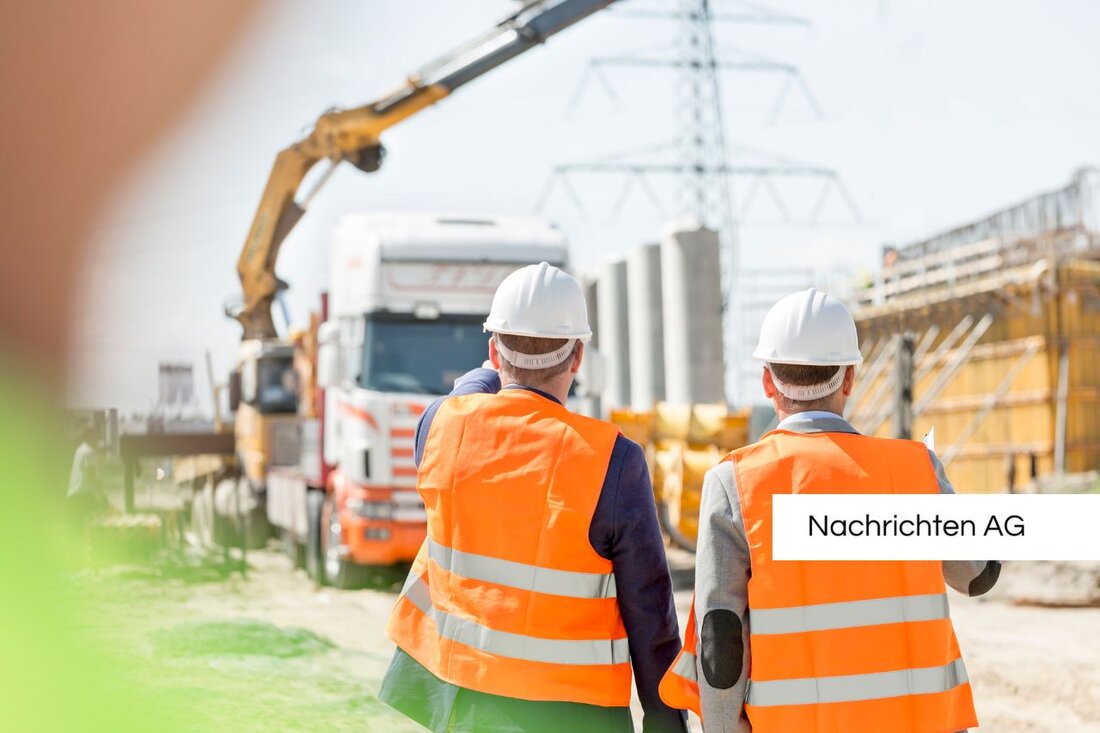Digital construction site in Braunschweig: Revolution for sustainable building!
Digital construction site in Braunschweig: Revolution for sustainable building!
With big steps into the future of building: The Technical University of Braunschweig opened its innovative Digital Construction Site (DCS) on July 3, 2025. Here is built digitally, and not without reason. The President of the TU, Angela Ittel, described the DCS as a milestone that not only promotes research, but also has an immense social relevance. Dr. Neven Josipovic, Chief Innovation Officer of the City of Braunschweig, emphasizes that this project makes a decisive contribution to sustainable urban development.
The DCS is a true technology bundle: a 6 meter high 3D printer, an automated concrete mixing system and mobile robots form the infrastructure. There is also an extremely modern tracking system and a digital control center that keeps everything in view. The aim of the initiative is to promote digitization in construction and thereby promote a more productive and sustainable construction industry. Professor Patrick Schwerdtner explains that real construction site conditions are used to intensively test digital technologies.
innovations on the construction
But that's not all. As part of the DCS, data -based and automated processes are to be developed and tested. The large advantages include resource -efficient construction, shortened construction times as well as increased security and improved construction quality. Professor Harald Kloft emphasizes the crucial role of digitization, which significantly drives the change in construction. The TU research insights are also not to be neglected: Professor Norman Hack deals with resource-saving construction methods with 3D printing, while Professor Markus Gerke focuses on sensor-based quality control and measurement on construction sites.
The DCS acts as a test field for regional and national companies in the construction industry. This ambitious project, which is funded by around 3.8 million euros from the European Fund for Regional Development (EFRE), is the answer to the challenges that the building faces faced. Among other things, inefficient material utilization and high environmental pollution are tackled, which, according to the department "Additive Manufacturing in Construction" (AMC), urgently need solutions. The research association, consisting of the TU Braunschweig and the Technical University of Munich, is entitled to a four -year extension of its funding by the German Research Foundation. This is intended to test innovative approaches to 3D printing in construction, including for clay buildings and flood protection.
digitization as a key technology
The desired transformation of building goes hand in hand with digitization. This is an integral part of our everyday life - whether at work or in leisure time. In construction, digital technologies such as Building Information Modeling (BIM), Internet of Things (IoT) and robotics are of central importance. They all have the potential to fundamentally change the work processes in the life cycle of buildings. Efficient use of data is just as central here as the creation of affordable living space and reaching the climate goals, according to the Federal Ministry of Building.
The BIM Germany initiative further promotes the exchange of digital data. Apparently, the goal is clear: digitization should benefit everyone involved in the construction system and enable efficiency increases. And that is necessary, because the shortage of skilled workers is another urgent problem in the industry. Further information on the diverse aspects of digitization in the construction system can be found on the website of the BMWSB.
Overall, the Digital Construction Site in Braunschweig forms the next exciting step into the future of building. The DCS sets new standards for sustainable and efficient construction industry - and that could be the beginning of a new era.
| Details | |
|---|---|
| Ort | Braunschweig, Deutschland |
| Quellen | |


Kommentare (0)